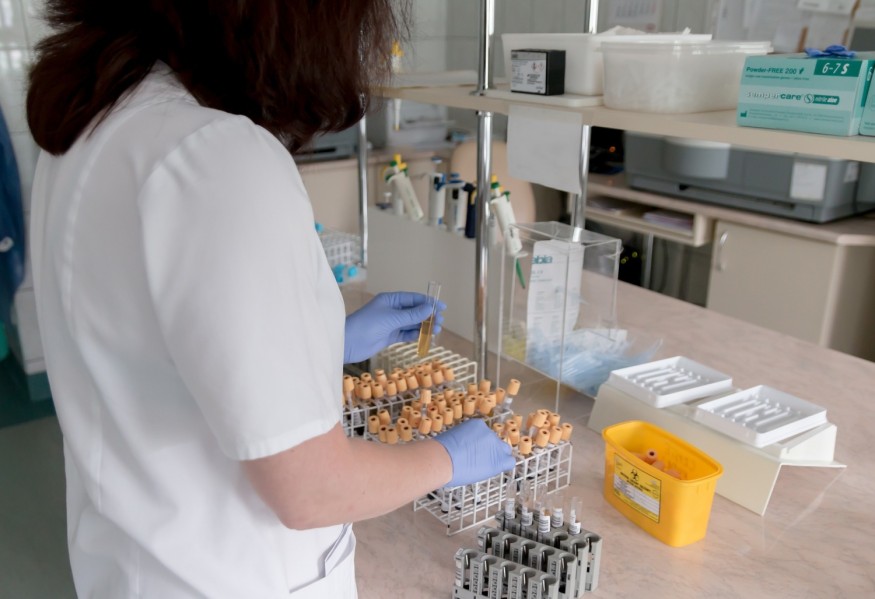A pill containing a compound that prevents lupus-like symptoms and reverses signs of organ damage in mice who have the disease and stops death is now in phase two clinical trials, according to scientists. They will present their findings at the American Chemical Society's annual fall meeting, including nearly 11,000 presentations on various scientific subjects.
Lupus Treatment Challenges
According to the Mayo Clinic, lupus is an autoimmune disease that develops when your body's immune system attacks your tissues and organs. The Lupus Foundation of America estimates that lupus affects five million people worldwide. Rashes, extreme fatigue, pain, inflammation, and organ deterioration, including that of the kidneys and heart, are among the symptoms which can be fatal.
When the immune system attacks the body's tissues, lupus develops. Researchers have long suspected that TLRs 7 and 8-cellular proteins that trigger the immune system when they detect viral RNA or mistakenly interpret a person's own RNA as a threat are involved in this process.
The researchers think the substance they found might be a successful lupus treatment, despite the fact that few new therapies have been successful.
Genetic information and analyses of injectable therapies indicated that TLR7 and eight might be drug targets for lupus, but an oral small molecule therapy to directly block the receptors was still lacking, according to Alaric Dyckman, Ph.D. He and other researchers at Bristol Myers Squibb (BMS) began working on the development of such compounds in 2010.
Current Lupus Treatment
Since many patients don't fully respond to the medications they are currently taking, new options would be welcome. The two approved treatments for lupus decrease the activity of a particular immune system.
Anifrolumab by AstraZeneca inhibits an interferon receptor, whereas belimumab by GlaxoSmithKline decreases the survival of B cells, which are white blood cells. Steroids and other immune suppressants in general, anti-malarial drugs, anti-inflammatories, and anticoagulants are some additional treatments.
However, Dyckman observes that belimumab and anifrolumab must be administered intravenously or intravenously. At the same time, steroids and all-purpose immune suppressants are linked to safety issues and were not initially intended to treat lupus.

Afimetoran Effectiveness on Lupus-Like Symptoms
By searching the company's compound library for substances that could inhibit TLR7/8 signaling, the BMS researchers could narrow their search for an appropriate substitute. In order to improve potency, decrease interaction with other receptors, and enable oral dosing, the team modified the initial hits' structural components. The resulting substance, afimetoran, binds to the target TLRs and prevents them from functioning to produce the desired activity.
It inhibits interferon similarly to anifrolumab and controls the harm caused by overactive B cells similarly to belimuma. Additionally, it prevents the synthesis of a number of proinflammatory cytokines that are highly destructive to tissue in lupus.
Afimetoran, according to Dyckman, could not only stop the emergence of lupus-like symptoms in mice prior to the onset of the disease, but it could also reverse the symptoms in animals that were just days or weeks away from dying from the condition.
The researcher continued that with other mechanisms they have evaluated, they have not observed that reversal. They think that afimetoran's combined effects have the potential to control lupus as well as or better than current treatments, and it can do this via oral delivery rather than an injection or infusion.
The team also discovered that afimetoran and corticosteroid treatments worked well in mice. Thus, patients who typically take high doses of steroids to treat lupus may be able to do so at lower dosages. Because steroids have side effects like weight gain, thinning bones, high blood pressure, diabetes, and an increased risk of infection, lower doses would be advantageous.
RELATED ARTICLE: Normal Appearing Skin of Lupus Patients Found Vulnerable to Rash, Changes Due to Genetics and Blood Activities
Check out more news and information on Medicine and Health in Science Times.
© 2025 ScienceTimes.com All rights reserved. Do not reproduce without permission. The window to the world of Science Times.










